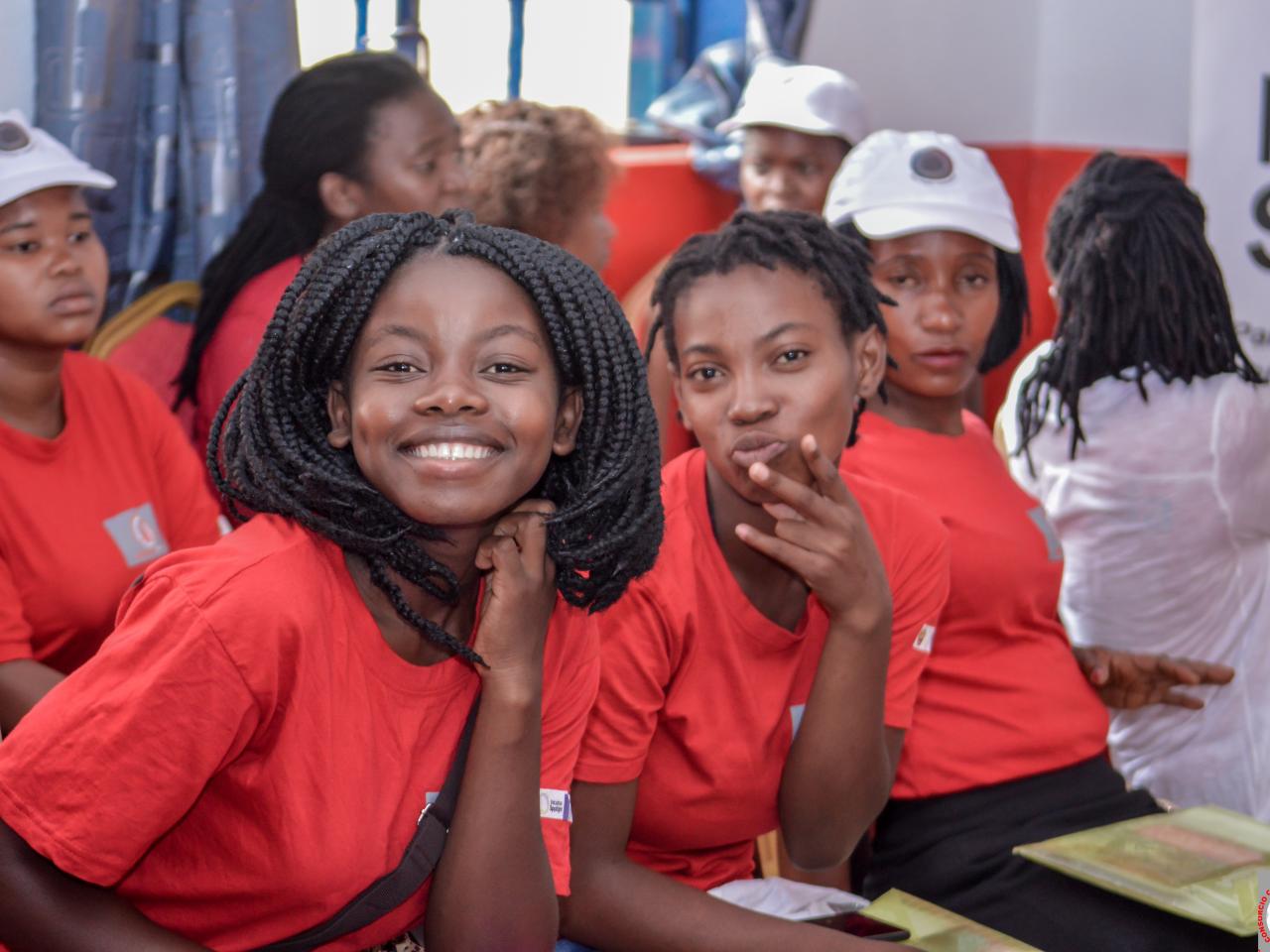Shelter and justice for rape survivors in Mozambique
CHIMOIO, Mozambique – Isaura*, 11, was walking home from school one day with her friends when a man pulled her into the bush and raped her. Terrified, her friends ran for help and called her family.
When the family arrived, Isaura was badly injured. They took her to hospital, alerted the community leader, the police and LeMuSiCa – a Spotlight Initiative-supported organization that runs one of the few women’s shelters in the country, in Manica Province.
The family reported the incident at the government-run Family and Minors Victims of Violence Assistance Office, where an arrest warrant for the aggressor was issued. He was promptly found and detained.
“We convinced the family to not accept money or give in to threats by the aggressor’s family” - Achia Camal, LeMuSiCa coordinator
Shelter and Counselling
Despite recovering physically, Isaura was deeply traumatized. She was afraid of others and would only speak with Cecília Ernesto, a LeMuSiCa social worker. Given the gravity of her situation, Isaura’s family agreed to let her stay at LeMuSiCa’s shelter, where she received counselling and met other girls recovering from violence.
Meanwhile, Ms. Ernesto kept contact with Isaura’s family, informing them about the laws that punish rapists and protect women and girls from violence. She explained the consequences of letting the aggressor go unpunished, such as Isaura’s trauma worsening, setting a bad example, or worse yet – the man could reoffend.
In Mozambique and other countries, there are contradictions between the law and customary practices that perpetuate a culture of silence around violence. In cases of rape, it is common for the survivor’s family to seek a settlement with the aggressor – sometimes with the help of a local leader – without involving the authorities.
According to the latest Demographic and Health Survey in Mozambique (DHS 2011), more than 37 per cent of Mozambican women suffer physical and sexual violence during their lives. Underreporting remains a huge issue in Mozambique, as it does around the world. Global data suggests only four in ten women who experience violence seek help of any sort, and of these, only one in ten appeals to the police.
Globally, only four in ten women who experience violence seek help of any sort. Even fewer - one in ten - reports it to the police.
Helping families navigate customary and formal law
Thanks to Ms. Ernesto’s encouragement over eight months, Isaura’s family agreed not to withdraw the charges and to let formal justice run its course. “We convinced the family to not accept money or give in to threats by the aggressor’s family”, said Achia Camal, LeMuSiCa’s coordinator.
Isaura’s rapist was sentenced to 19 years of prison by the Manica Provincial Court, setting a strong example to other offenders and boosting survivors’ trust in the justice system.
Despite this outcome, a lot remains to be done for girls and women experiencing violence across the country. The Spotlight Initiative continues to support the Government of Mozambique, training service providers from the health, social protection, police and justice sectors to assist survivors with greater sensitivity, ensuring they receive quality, life-saving care and legal support. At the same time, the programme supports the justice system to establish gender-based violence response units across its institutions, ensuring that more perpetrators are punished, and survivors assisted and protected.
Isaura is still living at the shelter and has been re-enrolled in school. During monthly visits to her family, she is taking part in her community, and will return once she feels ready.
LeMuSiCa is part of the Consortium Against Sexual Violence, a partnership of seven women’s organizations working to prevent sexual and gender-based violence under the Spotlight Initiative. LeMuSiCa brings hope to women and children survivors of violence in Manica province, by providing them with shelter and psychosocial support. Together with local organization LUARTE, LeMuSiCa also sensitizes families, communities and local leaders to motivate them to report cases of violence, helping them navigate the justice system.
Reporting by Achia Camal and Laura Lambo. Photo: UNICEF/Ricardo Franco
*Name has been changed to protext survivor's privacy.

